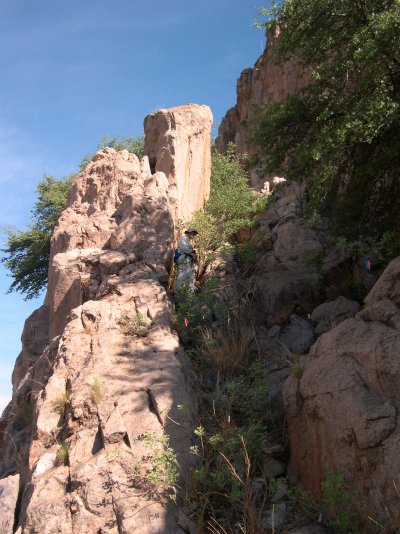shortstop14
Recycles dryer sheets
- Joined
- Aug 22, 2012
- Messages
- 297
I'm curious as to whether anyone out there has gotten a post-retirement urge to go back and do something related to their field, or something similar. After almost three years retired, I'm kind of interested in exploring some of the areas that attracted me to science and technology in the first place. But I have no desire to work for pay or on someone else's schedule.
I haven't had any lack of things to keep me busy in retirement, but there are aspects related to work that I kind of miss.
My educational background was in biology, but my career was in IT. Both of those areas have some really interesting areas of concentration - certainly way more intrinsically interesting than the business IT projects I did professionally. But some things are just hard to get involved in when you're not part of a larger organization - I'd think engineers or medical professionals might run into the same issue once they leave the workforce.
I think it's the complexity of scientific or technical fields that still holds some interest. Sure, there's plenty of material to read and try to keep up with advances in the fields, but that doesn't completely fill the bill. I guess I miss working with a team of smart people on a common goal. I've got friends who have kept working because it's the only way to keep active in the field they love.
One area of interest is in water rights and environmental protection, but most of the action there is legal. I've taken some online courses in Environmental Law, and explored the local law school which has a Masters in Environmental Law degree. But it's hard to justify the cost, and I expect I'd be interested in the lectures and reading but have no interest in spending time on tasks that are solely for evaluation - I really don't feel any need to be evaluated at this point in life. But I keep looking at various environmental and conservation organizations to see if I can find a good fit, maybe in research or analysis.
After it hit 60 next year, I can audit classes for free at the local state university branch, so maybe that will be enough to feel like I'm keeping up with the technical world.
There are probably more computer technology areas to explore, and that might be easier to approach. At this point, I'm a lot more interested in the application of technology than in the development - 30+ years of software development was more than enough of that.
Some political areas are appealing, but the noise to signal ratio in political discourse is just annoying.
So I guess my question is - has anyone come up with a way to feed their itch for complexity that doesn't require a lot of commitment to a schedule?
I haven't had any lack of things to keep me busy in retirement, but there are aspects related to work that I kind of miss.
My educational background was in biology, but my career was in IT. Both of those areas have some really interesting areas of concentration - certainly way more intrinsically interesting than the business IT projects I did professionally. But some things are just hard to get involved in when you're not part of a larger organization - I'd think engineers or medical professionals might run into the same issue once they leave the workforce.
I think it's the complexity of scientific or technical fields that still holds some interest. Sure, there's plenty of material to read and try to keep up with advances in the fields, but that doesn't completely fill the bill. I guess I miss working with a team of smart people on a common goal. I've got friends who have kept working because it's the only way to keep active in the field they love.
One area of interest is in water rights and environmental protection, but most of the action there is legal. I've taken some online courses in Environmental Law, and explored the local law school which has a Masters in Environmental Law degree. But it's hard to justify the cost, and I expect I'd be interested in the lectures and reading but have no interest in spending time on tasks that are solely for evaluation - I really don't feel any need to be evaluated at this point in life. But I keep looking at various environmental and conservation organizations to see if I can find a good fit, maybe in research or analysis.
After it hit 60 next year, I can audit classes for free at the local state university branch, so maybe that will be enough to feel like I'm keeping up with the technical world.
There are probably more computer technology areas to explore, and that might be easier to approach. At this point, I'm a lot more interested in the application of technology than in the development - 30+ years of software development was more than enough of that.
Some political areas are appealing, but the noise to signal ratio in political discourse is just annoying.
So I guess my question is - has anyone come up with a way to feed their itch for complexity that doesn't require a lot of commitment to a schedule?

